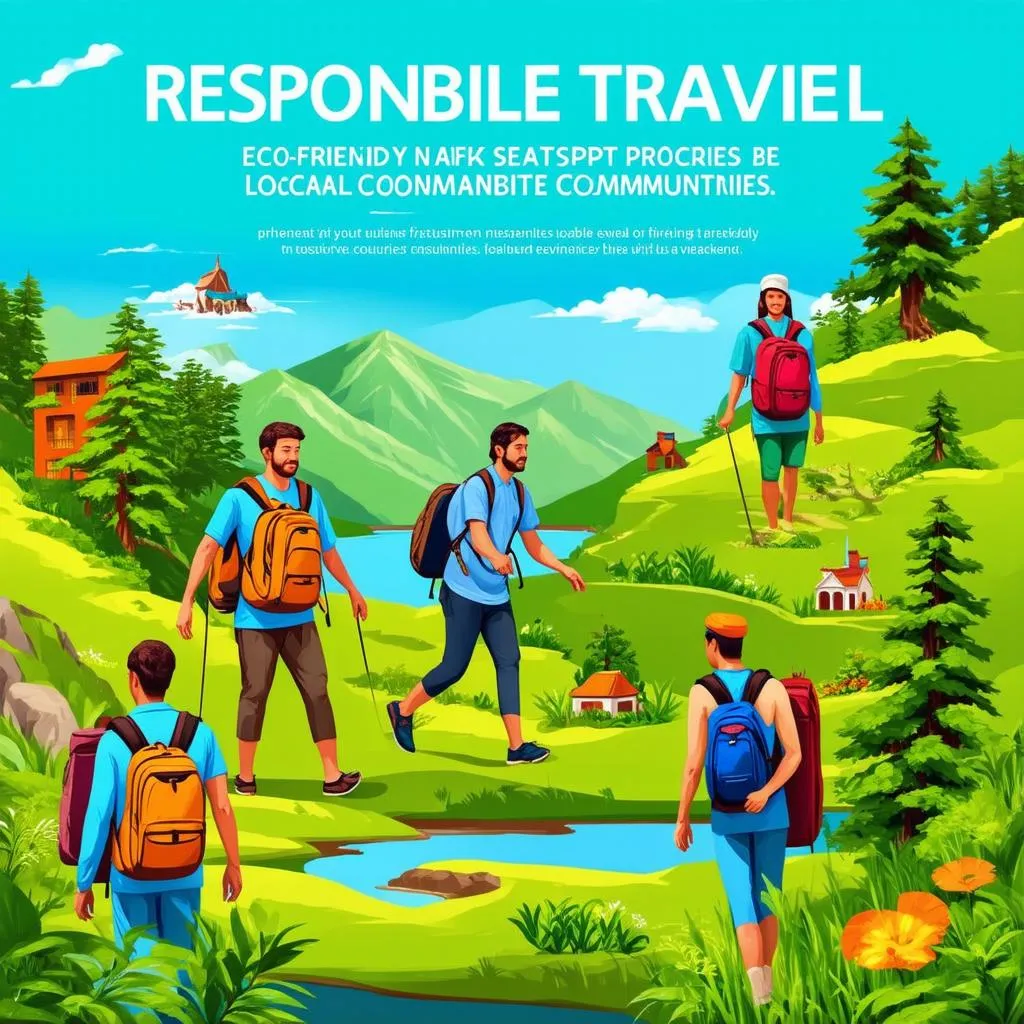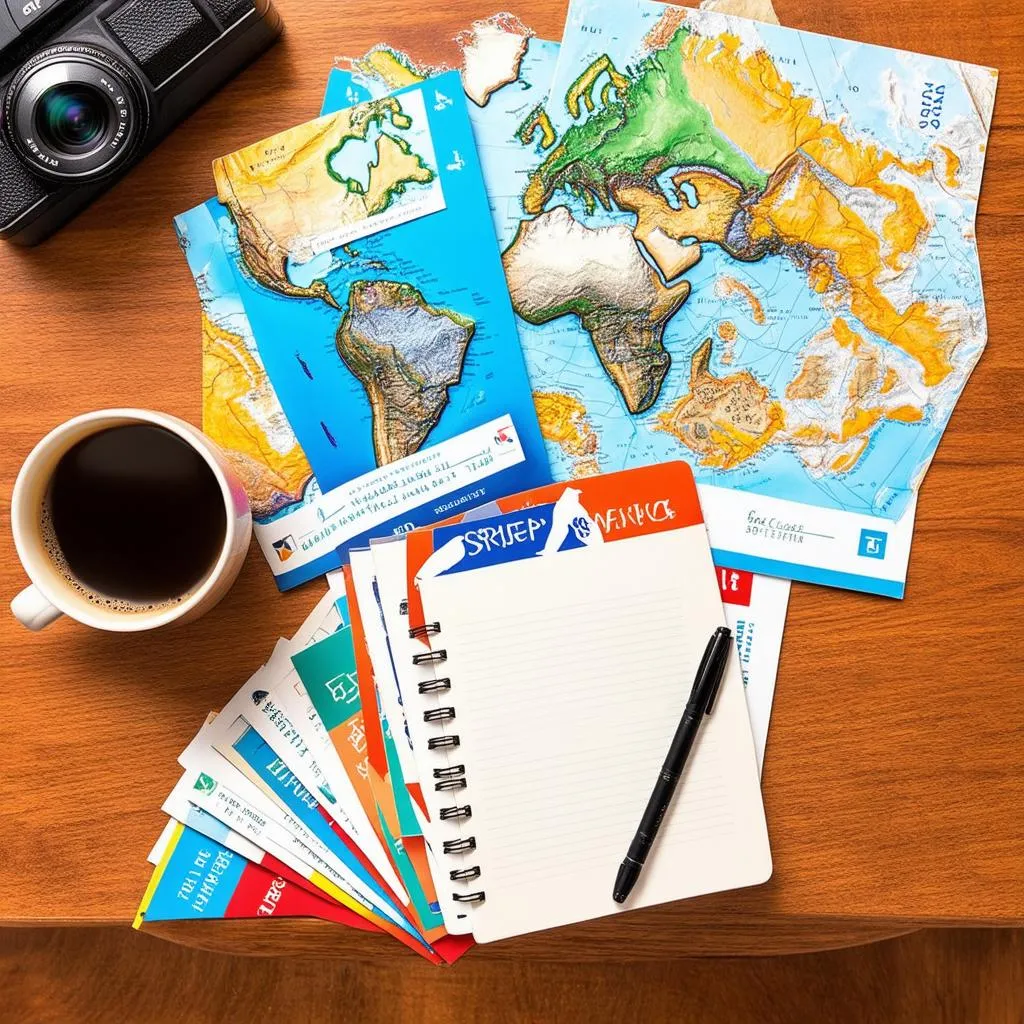Have you ever stood on the precipice of a breathtaking vista, the wind whispering tales of ancient cultures and the landscape painted with vibrant ecosystems, and felt the urge to preserve this beauty? That, my friend, is the essence of sustainable tourism.
It’s not just a buzzword; it’s a commitment to experience the world in a way that minimizes our footprint while maximizing the benefits for local communities, economies, and the environment.
And what better way to delve into this fascinating world than by crafting a compelling dissertation on sustainable tourism?
Dissecting the Dissertation: What Does It Entail?
A dissertation on sustainable tourism is more than just a research paper; it’s an opportunity to explore the intricate tapestry woven between travel and its impact on our planet.
Think of it as a deep dive into responsible travel, eco-tourism, and community-based tourism initiatives. You might analyze the success stories of eco-lodges in Costa Rica or the challenges faced by cultural heritage sites grappling with over-tourism in places like Angkor Wat.
Key Areas to Explore:
- Environmental Conservation: Analyze how tourism can contribute to protecting natural resources, minimizing pollution, and conserving biodiversity.
- Socio-Cultural Impact: Investigate the influence of tourism on local communities, their traditions, and ways of life.
- Economic Viability: Assess the economic benefits and challenges of sustainable tourism for both local communities and the global tourism industry.
- Policy & Planning: Examine the role of government regulations, international agreements, and destination management strategies in promoting sustainable tourism practices.
Crafting Your Masterpiece: A Guide to Writing Your Dissertation
1. Choosing Your Focus:
- Passion is Key: Select a topic that genuinely interests you. Whether it’s the preservation of coral reefs in the Maldives or the revitalization of traditional crafts in the villages of Peru, your enthusiasm will shine through in your writing.
- Narrow Your Scope: Instead of tackling the entirety of sustainable tourism, focus on a specific region, issue, or case study. This will make your research more manageable and impactful.
2. Unearthing the Gems: Research & Resources
- Academic Journals: Dive into reputable tourism journals like the Journal of Sustainable Tourism, Tourism Management, and Annals of Tourism Research.
- International Organizations: Explore reports and publications from organizations like the UN World Tourism Organization (UNWTO), the Global Sustainable Tourism Council (GSTC), and the World Travel & Tourism Council (WTTC).
- Case Studies: Analyze real-world examples of sustainable tourism initiatives, both successful and those facing challenges.
3. Structuring Your Dissertation:
- Introduction: Set the stage by defining sustainable tourism, its importance, and outlining the key themes you’ll be exploring.
- Literature Review: Synthesize existing research on your chosen topic, highlighting key debates, theories, and findings.
- Methodology: Clearly outline your research methods, whether you’re conducting interviews, surveys, or analyzing data.
- Findings & Analysis: Present your research findings and analyze their implications for sustainable tourism.
- Discussion & Conclusion: Summarize your key arguments, discuss their significance, and offer recommendations for future research or action.
Don’t Forget the Human Touch: Engaging Your Readers
A compelling dissertation is more than just facts and figures; it’s about telling a story that resonates with your readers.
- Weave in a Narrative: Start with an anecdote, a thought-provoking question, or a vivid description of a place where sustainable tourism is thriving.
- Use Strong Visuals: Incorporate images, graphs, or charts to illustrate your points and make your dissertation more engaging.
- Connect with Emotions: Appeal to your readers’ sense of responsibility and their desire to make a positive impact on the world.
FAQs: Answering Your Burning Questions
1. What are some examples of sustainable tourism destinations?
From the eco-lodges nestled in the rainforests of Costa Rica to the community-based tourism initiatives in the Himalayas, the world is brimming with inspiring examples. Check out Bhutan’s commitment to low-impact, high-value tourism or the Galapagos Islands’ strict conservation efforts.
2. How can I contribute to sustainable tourism as a traveler?
Every step counts! Choose eco-friendly accommodations, support local businesses, respect local customs, minimize your waste, and advocate for responsible tourism practices.
3. What are the biggest challenges facing sustainable tourism?
Balancing economic growth with environmental protection and ensuring equitable benefits for local communities are ongoing challenges. Climate change, over-tourism, and lack of awareness also pose significant hurdles.
Feng Shui and Sustainable Travel: Finding Harmony on the Road
Did you know that the principles of Feng Shui can even be applied to sustainable travel? Just as a balanced home promotes harmony, mindful travel involves seeking balance with the environment and local cultures.
- Choose accommodations that blend with nature: Look for eco-lodges, yurts, or guesthouses that use sustainable building materials and practices.
- Pack light and consciously: Reduce your carbon footprint by packing only what you need and opting for eco-friendly travel gear.
- Respect the energy of sacred sites: Be mindful of local customs and traditions when visiting temples, shrines, or other culturally significant places.
 Sustainable Tourism Banner
Sustainable Tourism Banner
Unleash Your Inner Advocate: Make Your Voice Heard!
Remember, your dissertation isn’t just an academic exercise; it’s an opportunity to contribute to the growing movement of sustainable tourism. By sharing your research and insights, you can inspire others to travel more consciously and make a positive impact on the world.
Start exploring, start writing, and join us in shaping a more sustainable future for travel!
 Travel Planning Desk
Travel Planning Desk
For more travel inspiration and resources on sustainable tourism, visit TRAVELCAR.edu.vn
